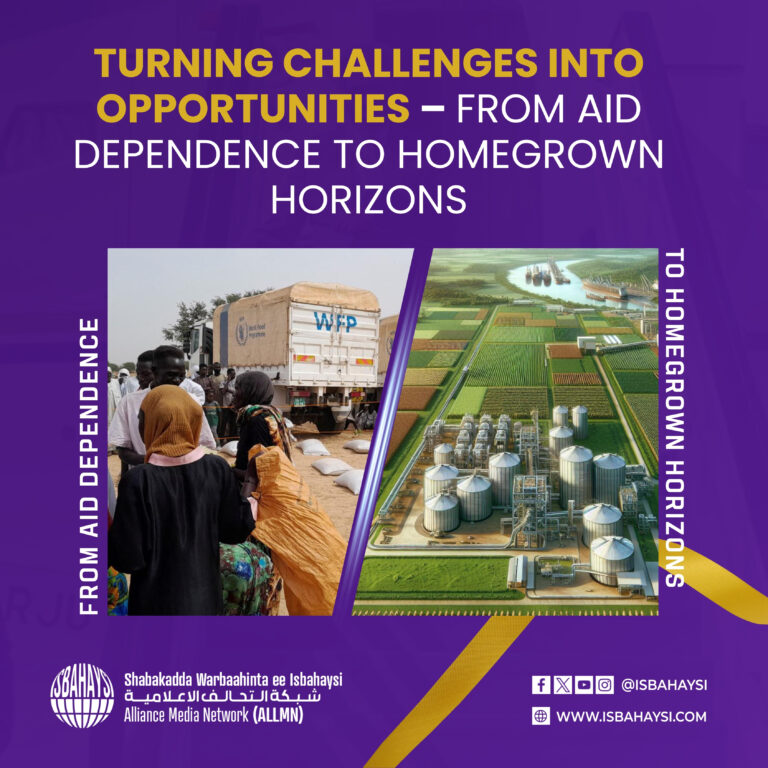
Across Africa, foreign aid has long been a complex force – fuelling progress in economies, governance and social systems, while, on the other hand, weaving threads of dependency. From rebuilding nations after colonialism to delivering emergency relief in war-torn regions, outside help has been both a safety net and occasionally, a trapdoor. But now, as global donors like the United States recalibrate foreign assistance amid domestic economic pressures and shifting priorities under the new administrations -Trump 2.0 – Africa faces a defining moment. Is this a new crisis confronting the continentt, or an opportunity for transformation?
From the bustling markets of Mogadishu to Nairobi’s energetic tech labs, a fresh story is taking root. Communities are starting to ask – what if less aid isn’t a death sentence but a chance to rewrite the rules? A moment to swap reliance for resilience, charity for self-made opportunity?
The Tightrope of dependency, aid has undeniably saved lives – funding hospitals, schools and roads. Yet, critics argue that it’s also muted local ingenuity, strained governance and kept nations leaning on crutches. Now, as budgets tighten, some leaders see a silver lining. Could shrinking aid force governments to innovate – to tax smarter, spend wiser and diversify economies?
Rwanda offers a blueprint in this regard. Once reliant on foreign aid, the nation pivoted by betting on tech hubs, eco-tourism and factories. By nurturing homegrown ideas and sturdy institutions, Rwanda turned aid cuts into a launchpad. The lesson here is that, with vision, even the steepest cliff can become a stepping stone. One of the greatest opportunities that aid reductions present is the push for locally-driven solutions. Across Africa, young entrepreneurs, social enterprises and civil society organizations are stepping up to fill gaps traditionally occupied by international donors. In Senegal, solar projects electrify villages without waiting for foreign grants (IFC 2021). In Ghana (Christian Akorlie 2025) and Kenya(The Star 2023), governments are overhauling tax systems to fund their futures – proving that necessity isn’t just the mother of invention but of accountability too.
The new realities are also triggering Africa to look inward. Hence, African Continental Free Trade Area (AfCFTA) shouldn’t be a policy anymore – it is becoming a promise. By tearing down trade barriers, linking infrastructure and syncing regulations, the continent could build an economic engine that runs on its own fuel. In the meantime, organizations like the African Union (AU) should tackle conflicts and development head-on, to signal that the continent isready to steer its own ship.
The truth is that new partners, new rules, aid’s fade doesn’t and shouldn’t mean isolation – it should means reimagining global ties. African nations need to push for deals built on trade, not charity. Already China’s infrastructure development in Africa, Turkey’s business engagements and Gulf investments in farms – for their own food security – hint at a future where Africa isn’t a passive recipient but a negotiator demanding fair play. The challengethough is to ensure these partnerships empower Africa’s position, not exploit.
In conclusion, yes, losing aid bites -health clinics may strain and other social development projects could stall in the short term – but crises have a way of unearthing courage. Therefore, this shouldn’t be about surviving, it should be about thriving. Africa’s youth, its innovators, its traders hold the keys. The question isn’t therefore, if the continent can adapt, but how fiercely it will fight for a future written on its own terms.
History whispers the truth that nations can only rise when they own their stories. For Africa, that story starts now. The world is watching – not with pity but anticipation. Ready or not, the pen is in Africa’s hand. What comes next could redefine a continent ‘s future for generations to come.
____________________
Author: Mr Balal Mohamed Cusman, Former State Minister for Foreign Affairs and International Cooperation of Somalia. Email: [email protected] X:@BalalCusman Skype:bcusman1